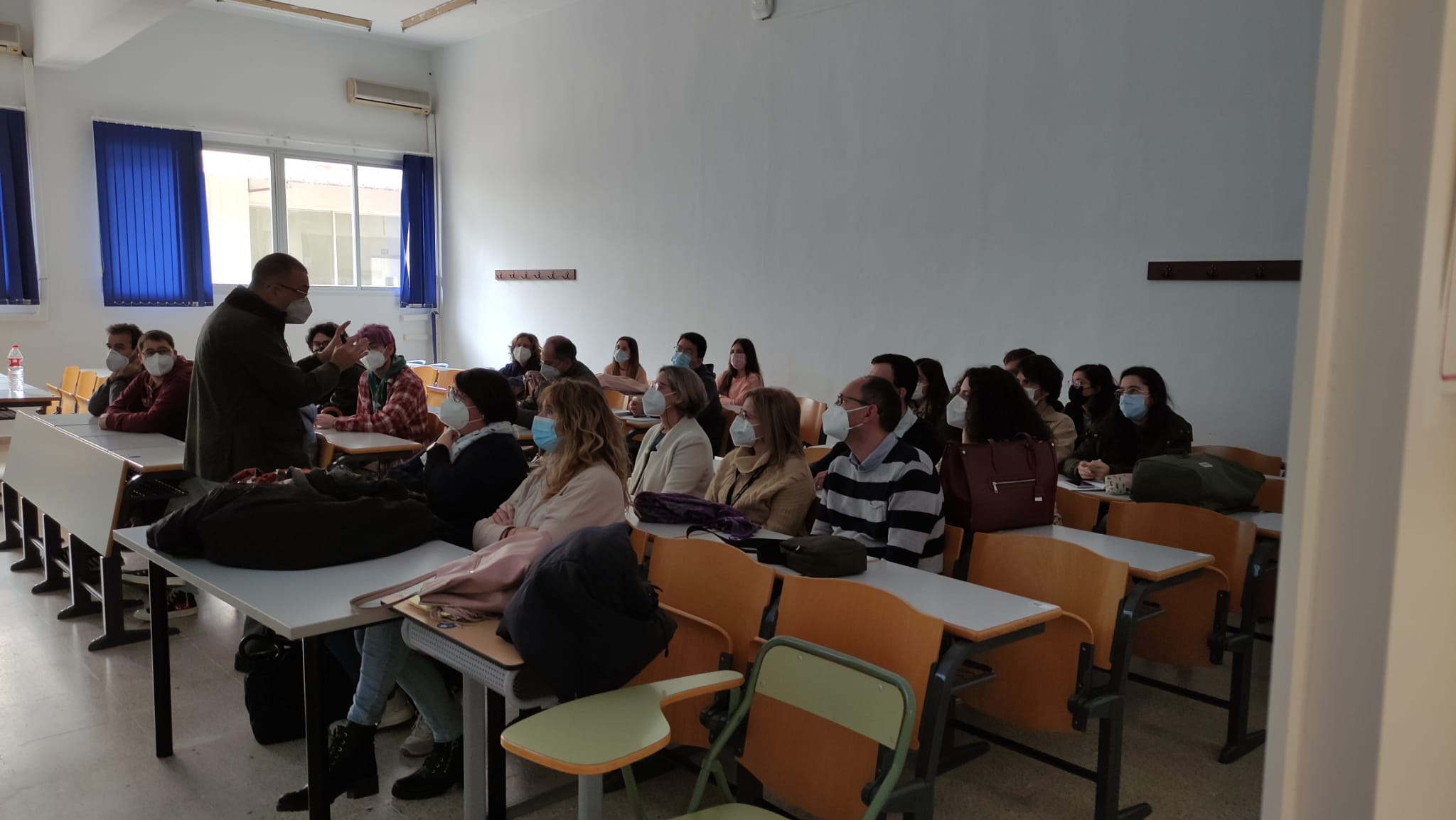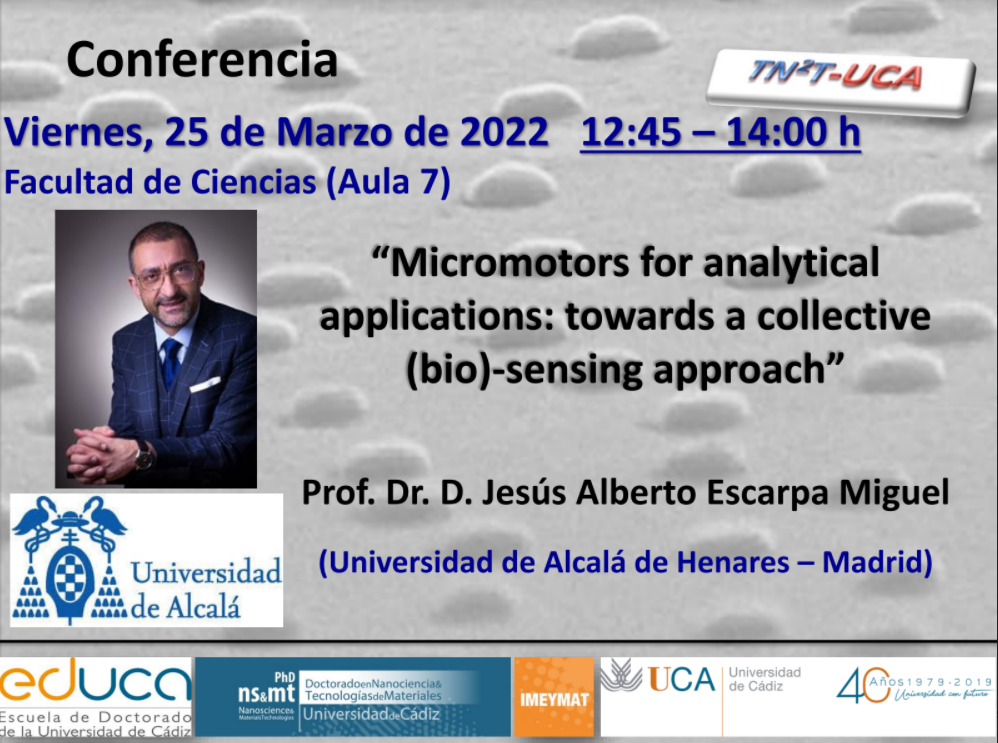Conference “Micromotors for analytical applications: towards a collective (bio)-sensing approach”-25/03 25 March 2022
Today March 25, we were able to enjoy the online conference “Micromotors for analytical applications: towards a collective (bio)-sensing approach” given by Prof. Dr. D. Jesús Alberto Escarpa Miguel (Universidad de Alcalá de Henares – Madrid).
This conference belongs to the Current Trends in Nanoscience and Nanotechnology 2022 course of the Doctoral Program in Nanoscience and Materials Technologies.

Prof. Escarpa is Full Professor of Analytical Chemistry at the University of Alcalá since 2017. In 2001 he received the prestigious NATO scholarship as a postdoctoral researcher at the New Mexico State University in the USA and in 2003 he obtained the “Young Researchers Award” from the University of Alcalá. That same year he founded the research group “Analytical Miniaturization and Nanotechnology” which focuses its research activity on analytical miniaturization and nanotechnologies, new nanomaterials for optical and electrochemical (bio)-sensing, electrochemical microfluidics, lab-on-a-chip technology and self-propelled micromotors.
He is the author of more than 200 international publications (h-index of 50, and more of 8000 citations), 6 international patents and co-author of 12 book chapters in international publishers. He has recently been included in the top-2% of most cited chemists in the world, and in the top-145-ranked (#76) chemistry researchers in Spain. He is co-author and editor of the book “Miniaturization of analytical systems: principles, designs and applications” (Wiley, 2009), senior editor of the book “Agricultural and Food Electroanalysis” (Wiley, 2015), and editor of the book “Carbon-based Nanomaterials in Analytical Chemistry” (RSC, 2018). He has supervised 19 PhD students and several postdoctoral researchers, receiving in 2021 the “Award for Excellence in Doctoral Thesis Direction of Science”. He is Associate Editor of the journal RSC Advances and Microchimica Acta and a member of the Editorial Committees for Electrophoresis, Food Chemistry, Applied Materials Today, Microchimica Acta, Sensors and Journal of Nanobiotechnology. He is currently Editor in Chief for Microchimica Acta.


